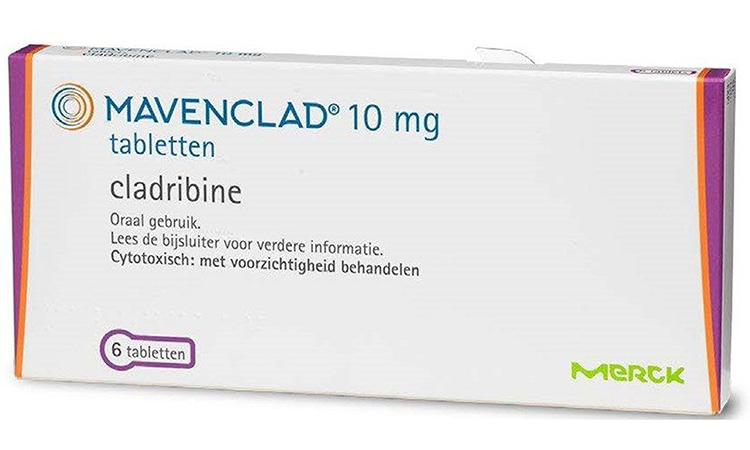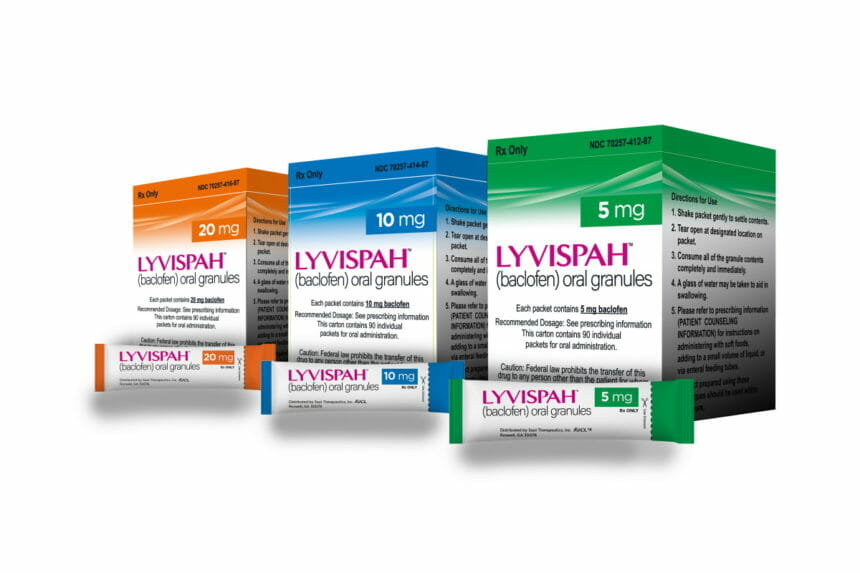Mavenclad (cladribine) vs Lyvispah (baclofen)
Mavenclad (cladribine) vs Lyvispah (baclofen)
Mavenclad (cladribine) is an oral medication specifically approved for the treatment of relapsing forms of multiple sclerosis (MS) and is designed to reduce the frequency of clinical exacerbations and delay the progression of physical disability. It works by selectively targeting and reducing certain white blood cells that are involved in the MS disease process. In contrast, Lioresal/Lyvispah (baclofen) is primarily used to treat spasticity (muscle stiffness and spasms) associated with conditions like MS, spinal cord injuries, or other neurological disorders, and it functions by acting on the central nervous system to relax muscles. When deciding between these medications, it is important to consider the specific symptoms and treatment goals, as Mavenclad addresses the underlying disease process in MS, while baclofen is aimed at managing specific symptoms such as spasticity.
Difference between Mavenclad and Lyvispah
| Metric | Mavenclad (cladribine) | Lyvispah (baclofen) |
|---|---|---|
| Generic name | Cladribine | Baclofen |
| Indications | Multiple sclerosis | Spasticity |
| Mechanism of action | Immunosuppressant; purine analog | GABA receptor agonist |
| Brand names | Mavenclad | Lioresal, Gablofen, Lyvispah |
| Administrative route | Oral | Oral, Intrathecal |
| Side effects | Lymphopenia, infection risk, liver enzyme elevations | Drowsiness, dizziness, weakness, fatigue |
| Contraindications | HIV infection, active chronic infections, pregnancy | Kidney disease, epilepsy, stroke, pregnancy |
| Drug class | Antineoplastic agent | Muscle relaxant, antispastic agent |
| Manufacturer | Merck | Various |
Efficacy
Mavenclad (Cladribine) for Multiple Sclerosis
Mavenclad (cladribine) is an oral medication approved for the treatment of relapsing forms of multiple sclerosis (MS), including relapsing-remitting disease and active secondary progressive disease, in adults. Clinical trials have demonstrated that Mavenclad is effective in reducing the frequency of MS relapses and slowing the progression of disability. The medication works by selectively targeting lymphocytes, which are thought to be involved in the pathological process of MS. By reducing the number of lymphocytes, Mavenclad helps to modulate the immune system and decrease the inflammatory response that leads to demyelination and neurological damage in MS.
The efficacy of Mavenclad was established through pivotal clinical trials, such as the CLARITY study, which showed that patients treated with cladribine had a significant reduction in annualized relapse rates compared to those who received a placebo. Additionally, the trial demonstrated that Mavenclad reduced the risk of worsening disability and had a positive effect on the number of MS lesions as seen on MRI scans. It is important to note that the benefits of Mavenclad must be weighed against its potential risks, as the drug carries a warning for an increased risk of malignancy and teratogenic effects.
Lyvispah (Baclofen) for Multiple Sclerosis
Lyvispah (baclofen) is a medication that is commonly used off-label for the treatment of spasticity associated with multiple sclerosis. Although not specifically approved for MS, baclofen's efficacy in managing symptoms of muscle stiffness, spasms, and pain has been widely recognized in clinical practice. Baclofen is believed to work by acting on the GABA receptors in the central nervous system, which helps to relax muscles and reduce spasticity.
Studies and clinical experiences have shown that baclofen can significantly improve the quality of life for patients with MS by alleviating muscle-related symptoms. Its effectiveness in reducing spasticity has been observed in various measures, such as the Ashworth scale, which assesses muscle tone. However, the response to baclofen can vary among individuals, and it may be necessary to adjust the dosage to achieve the optimal balance between efficacy and side effects. As with any medication, the use of baclofen for MS-related spasticity should be closely monitored by a healthcare professional to ensure safety and effectiveness.
Regulatory Agency Approvals
Mavenclad
-
European Medical Agency (EMA), European Union

-
Food and Drug Administration (FDA), USA

-
Health Canada

-
Therapeutic Goods Administration (TGA), Australia

-
Medsafe (NZ)

Lyvispah
-
Food and Drug Administration (FDA), USA

Access Mavenclad or Lyvispah today
If Mavenclad or Lyvispah are not approved or available in your country (e.g. due to supply issues), you can access them via Everyone.org.
How it works

Make an enquiry
Choose the medicine you want to buy, answer a couple of questions, and upload your prescription to speed things up. We’ll get back to you within 24 hours.


Make an enquiry
Choose the medicine you want to buy, answer a couple of questions, and upload your prescription to speed things up. We’ll get back to you within 24 hours.


Breeze through the paperwork
We'll guide you through the required documents for importing unapproved medicine, ensuring you have all the necessary information.


Get a personalized quote
We’ll prepare a quote for you, including medicine costs and any shipping, administrative, or import fees that may apply.


Receive your medicine
Accept the quote and we’ll handle the rest - sourcing and safely delivering your medicine.

Some text on this page has been automatically generated. Speak to your physician before you start a new treatment or medication.
Let's talk
If you have any questions, call us or send us a message through WhatsApp or email:
Contact us




